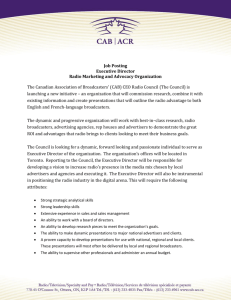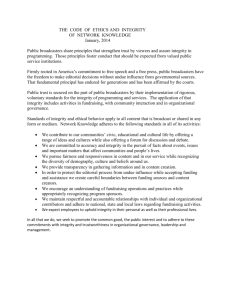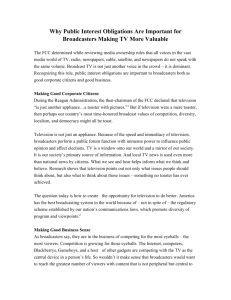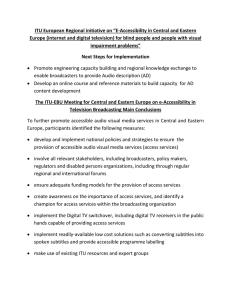Construction Law Update
advertisement
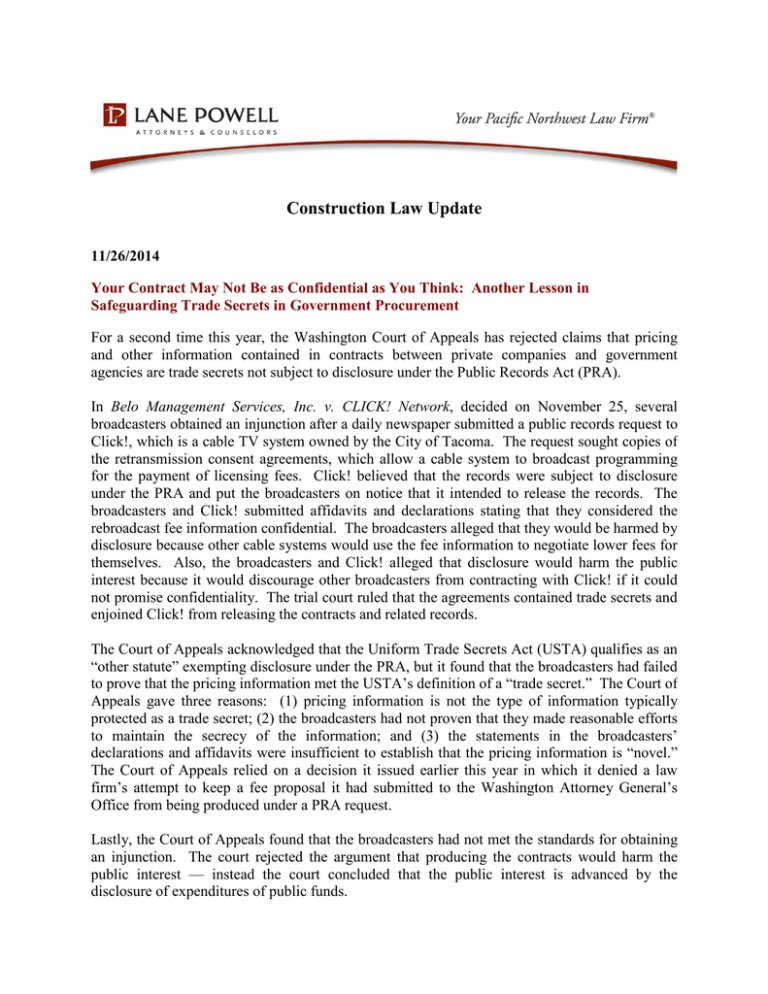
Construction Law Update 11/26/2014 Your Contract May Not Be as Confidential as You Think: Another Lesson in Safeguarding Trade Secrets in Government Procurement For a second time this year, the Washington Court of Appeals has rejected claims that pricing and other information contained in contracts between private companies and government agencies are trade secrets not subject to disclosure under the Public Records Act (PRA). In Belo Management Services, Inc. v. CLICK! Network, decided on November 25, several broadcasters obtained an injunction after a daily newspaper submitted a public records request to Click!, which is a cable TV system owned by the City of Tacoma. The request sought copies of the retransmission consent agreements, which allow a cable system to broadcast programming for the payment of licensing fees. Click! believed that the records were subject to disclosure under the PRA and put the broadcasters on notice that it intended to release the records. The broadcasters and Click! submitted affidavits and declarations stating that they considered the rebroadcast fee information confidential. The broadcasters alleged that they would be harmed by disclosure because other cable systems would use the fee information to negotiate lower fees for themselves. Also, the broadcasters and Click! alleged that disclosure would harm the public interest because it would discourage other broadcasters from contracting with Click! if it could not promise confidentiality. The trial court ruled that the agreements contained trade secrets and enjoined Click! from releasing the contracts and related records. The Court of Appeals acknowledged that the Uniform Trade Secrets Act (USTA) qualifies as an “other statute” exempting disclosure under the PRA, but it found that the broadcasters had failed to prove that the pricing information met the USTA’s definition of a “trade secret.” The Court of Appeals gave three reasons: (1) pricing information is not the type of information typically protected as a trade secret; (2) the broadcasters had not proven that they made reasonable efforts to maintain the secrecy of the information; and (3) the statements in the broadcasters’ declarations and affidavits were insufficient to establish that the pricing information is “novel.” The Court of Appeals relied on a decision it issued earlier this year in which it denied a law firm’s attempt to keep a fee proposal it had submitted to the Washington Attorney General’s Office from being produced under a PRA request. Lastly, the Court of Appeals found that the broadcasters had not met the standards for obtaining an injunction. The court rejected the argument that producing the contracts would harm the public interest — instead the court concluded that the public interest is advanced by the disclosure of expenditures of public funds. The result in this case serves as another warning to companies that enter into contracts with government entities — even ones that are performing what may be considered proprietary functions. Those agreements are subject to PRA requests, and parties asserting that pricing or other terms should be exempt from disclosure must be prepared to prove with specificity that they meet all the elements necessary to be defined as trade secrets. For more information, please contact the Construction Practice Group at Lane Powell: lanepowellpc@lanepowell.com This is intended to be a source of general information, not an opinion or legal advice on any specific situation, and does not create an attorney-client relationship with our readers. If you would like more information regarding whether we may assist you in any particular matter, please contact one of our lawyers, using care not to provide us any confidential information until we have notified you in writing that there are no conflicts of interest and that we have agreed to represent you on the specific matter that is the subject of your inquiry. Copyright © 2014 Lane Powell PC Seattle | Portland | Anchorage | Tacoma | London 2
